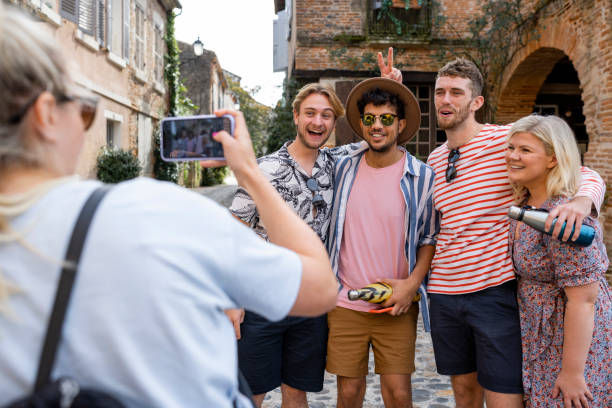What is a Tour Guide and what does a Tour Guide do?
- Catarina

- Sep 10, 2024
- 4 min read
Tour guides plan and implement scheduled activities for the guests of an establishment or tour. They organise a standard itinerary, making small adjustments based on the demographics and preferences of the group, they inform tourists about the common practices, history and forbidden acts of a place. Touristic guides, on the other hand, are small books with itineraries and tips on travelling, restaurants and accommodation. But what really is the role of a Tourist Guide?

To begin with, the correct designation is "Tour Guide" and not "Touristic Guide", although this is the most commonly used expression, but this only refers to the catalogue, leaflet or printed itinerary, the purpose of which is to publicise and promote a tourist region (municipality, state or country), in other words, it is the printed material that is provided to the tourist.
A tour guide, on the other hand, is a professional who is trained to receive, lead, guide and assist people and groups during transfers, tours, visits and trips at local, regional, national and international level. This profession is regulated under Portuguese law by Decree-Law 16/71 of 26 January - which published the Regulation of Tourist Information Activities - which has since been repealed and is now in force under Decree-Law 108/2009 of 15 May, establishing the conditions for access to and exercise of the activity of tourist entertainment companies and maritime-tourism operators.
Tip: All operators must have a licence from the National Tourism Registry, so if you have any doubts about whether the company or professional is qualified, ask to see the licence. Tourist entertainment companies must have the RNAAT licence, while travel agencies must have the RNAVT licence.
Essential characteristics of a tourism professional
Nowadays, a tour guide is also an entertainer. Tourist entertainment is the set of cultural, leisure, sporting, socialising and recreational activities offered to tourists by the various companies in the sector.
There are several studies that say that a good tourist facilitator should have 14 main characteristics:
Excellent communicator
Strong adaptability
Dynamic creativity and leadership
Be organised
Master techniques and resources
Continuous learning
The ability to improvise
Have teaching skills
Be tolerant
Being observant
Be friendly and amiable
Being a group organiser
Be enthusiastic
Be physically and psychologically resilient
In addition to these, I would add Punctuality, because schedules must be adhered to, and Responsibility, because we deal with people and have to guarantee their safety.
The work of a tourist entertainer begins long before the activity itself, and "homework" is essential, i.e. it's not enough just to have a licence and go out into the street, you have to analyse the competition, know what you can innovate in, see what the public is looking for, organise the activities and publicise them on the appropriate channels, and of course, study! Yes, you have to study a lot. Constantly learning is very important, every day we are asked questions that we need to know how to answer, which is why we need to study constantly.
It's only after this that the animator's work really begins: guiding the groups, telling stories, managing conflicts in the teams and sometimes even in the group when it brings several groups of people together, you have to be really patient and imaginative. For this reason, and because I also prefer to work with small groups, I don't usually bring several groups together. But that's up to each individual.
The Role of a Tour Guide
As anyone who has been on a guided tour knows, the job goes far beyond simply being a fact-filled expert. A complete guide is a great storyteller and group leader who often occupies the role of host, educator, artist, security officer, historian, photographer, counsellor, navigator, naturalist, customer service representative, parent, friend and much more. more.
A tour guide fulfils many roles, from trip leader to group photographer.
The guide fulfils the important responsibility of providing the experience to your guests, and how well they carry out this responsibility can have a significant impact on your travel business. For example:
Impact on travellers' experience: Your tour guides can make a difference to a traveller's experience. A well-trained guide knows how to map out a tour and turn it into an extraordinary experience that will be even more special for each guest, an unforgettable part of their trip that they will remember forever.
Impact on company reputation: Training your guides to provide these highly positive experiences will also have a positive impact on your company's reputation. A positive experience inspires your guests to praise your family and friends in person and on social media, leave five-star reviews about your company online and maybe even come back for more. On the other hand, a negative experience provided by an inexperienced and poorly trained guide can have significant negative implications in the form of customer complaints, negative reviews or worse.
⭐⭐⭐⭐⭐ Now that you've discovered the difference and the advantages you can get from taking a tour with a Tour Guide take a look at the services we can offer you to make your day unique









Comments